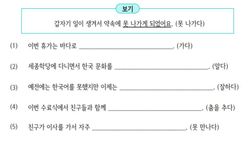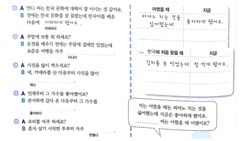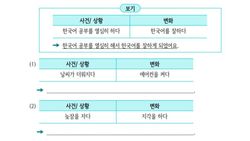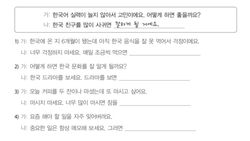Feb 24, 2022
Verb -게 되다(1)

-게 되다 Is used to express a final condition after a change has occurred. It is usually expressed in the past tense because it describes a condition that has already changed. It has the same meaning as "to come to (a change)".
It is used with verbs and 있다/없다 and always attached directly to the end of a stem.
➡️잘하다 -> 잘하 + 게 되다 -> 잘하게 되다
처음 한국에 왔을 때에는 한국어를 못 했는데 지금은 잘하게 됐어요.
When i came to Korea for the first time i couldn't speak Korean but now i become good at it.
➡️있다 -> 있 + 게 되다 -> 있게 되다
김치 처음 먹었을 때에는 너무 매웠는데 지금은 잘 먹을 수 있게 됐어요.
When i ate kimchi for the first time it was very spicy but now i can eat it well.
📝NOTE📝
⭐ The present tense or future tense of -게 되다 can be used to speak about well-known facts or generally agreed-upon truths.
한국 친구와 이야기를 많이 하면 한국어를 잘하게 돼요.
If you converse often with korean friends your korean will become better.
가: "수잔 씨가 친절하지 않아서 마음에 안 들어요."
I don't like Suzan because she is not friendly.
나: "수잔 씨가 똑똑하고 착하니까 여러번 만나면 좋아하게 될거예요."
If you meet her for few times you will like her because Suzan is smart and kind.
⭐ -아/어지다 is usually used with adjectives
날씨가 따뜻해졌어요
The weather has gotten warmer.
아까는 배가 아팠는데 지금은 약을 먹어서 좋아졌어요.
My stomach hurt before but it has gotten better because i took medicine.
✨BONUS✨
재미있다 -> 재미있어졌어요.
여자 친구가 있다 -> 여자 친구가 생겼어요.
집에 있다 -> 집에 있게 됐어요.
수영할 수 있다 -> 수영할 수 있게 됐어요.




